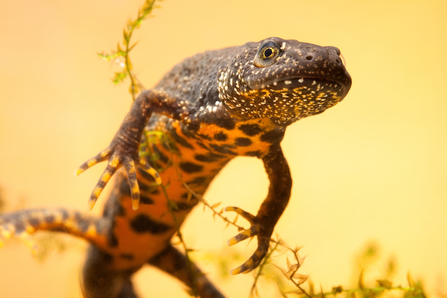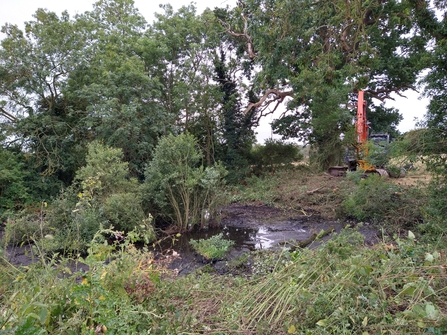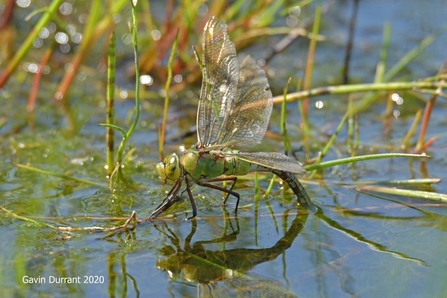We’ve been busy this autumn restoring farm ponds as part of Natural England’s District Level Licensing Scheme for great crested newts (GCN). As you may know, previous mitigation for development meant that GCNs had to be translocated. This new scheme targets pond rich areas in the country to support and strengthen existing populations.
Farmland ponds update - November 2021

Great crested newt
The priority for pond restorations (under this scheme) are ponds that are no longer suitable for great crested newts and that are in close proximity to suitable habitat – nearby ponds for their aquatic stage and woodpiles and hedgerows for their overwintering terrestrial habitat, where they spend most of their lifecyle. Many former farm ponds have become surrounded by trees and scrub and full of leaf-litter and therefore are of low value to wildlife. These forgotten ponds are perfect for transformation back to open habitats rich in wildlife. The work entails removal of silt and restoring the ponds original profile, with shallow gradient edges. Bankside tree removal is also important, whilst leaving a few feature trees, such as veterans or those with wildlife features such as holes and crevices for roosting bats. Clearance along the southern edge is most important to let maximum light into the pond. This will allow growth of marginal and aquatic plants from the existing seedbank which will not only benefit newts but a whole host of wetland wildlife – dragonflies, aquatic invertebrates, and other amphibians, such as toads and frogs.

Farmland pond restoration work in progress - Jenny Rawson
So far this autumn we have restored 11 ponds (and counting!), on farms across Suffolk, with a further 25 planned. Many thanks to the landowners who have been involved with this scheme thus far. The team are looking forward to returning to farms in the spring to survey for newts and see what other wildlife has found its way back to these new watery oases. We will also soon be starting on some pond creation including ghost ponds – more on this soon!

Emperor dragonfly ovipositing
If you have a farmland pond in need of restoration or are a landowner who'd like to create a new one, please contact us at Suffolk Wildlife Trust.
